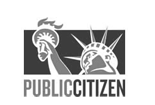Public debate over the proposed Keystone XL pipeline is gaining momentum and media coverage across the country. The fossil fuel industry and U.S. Chamber claim that the pipeline will bring economic growth and energy security to the United States, but are coming up against a hard line of opposition comprised of journalists, scholars, scientists, teachers, celebrities, well-respected institutions and news sources—including the New York Times—who aren’t falling for the industry’s sweet-sounding talking points.
In a recent editorial, the NY Times comes out against the Keystone XL pipeline, stating “this [Ed itorial] page opposes the building of a 1,700-mile pipeline called the Keystone XL, which would carry diluted bitumen — an acidic crude oil — from Canada’s Alberta tar sands to the Texas Gulf Coast. We have two main concerns: the risk of oil spills along the pipeline, which would traverse highly sensitive terrain, and the fact that the extraction of petroleum from the tar sands creates far more greenhouse emissions than conventional production does.”
itorial] page opposes the building of a 1,700-mile pipeline called the Keystone XL, which would carry diluted bitumen — an acidic crude oil — from Canada’s Alberta tar sands to the Texas Gulf Coast. We have two main concerns: the risk of oil spills along the pipeline, which would traverse highly sensitive terrain, and the fact that the extraction of petroleum from the tar sands creates far more greenhouse emissions than conventional production does.”
The U.S. Chamber wasn’t pleased with the NY Time announcement, and countered with its own blog post:
What would stopping the Keystone XL pipeline accomplish? Do they not want the ten of thousands of jobs directly and indirectly created from the pipeline? Would they rather have the U.S. be less energy secure? Do they want to be on the side of anti-growth, anti-energy protesters?
Not only do the Chamber’s claims that the pipeline would bring economic and energy security fall far short of a convincing argument, but its insinuation that anyone against the Keystone XL pipeline is an anti-energy, anti-growth “green activist” is, simply put, not true.
The people opposed to the Keystone XL pipeline represent a wide range of backgrounds and interests. Right now, thousands of American citizens—including Nebraskan farmers, members of the Tea Party and others who would typically fall on the conservative side of the political spectrum—are gathering in Washington DC to protest the Keystone XL pipeline.
Over the next two weeks, people who may never have had reason to come together before have traveled hundreds of miles to unite in front of the White House and ask Obama to stop the Keystone XL, and they’re using the only currency they have available: their bodies and spirit. Already, 160 people have been arrested for non-violent civil disobedience in front of the White House, and more people are being arrested every day to draw attention to the fact that the pipeline would be devastating for America’s people, economy and environment.









